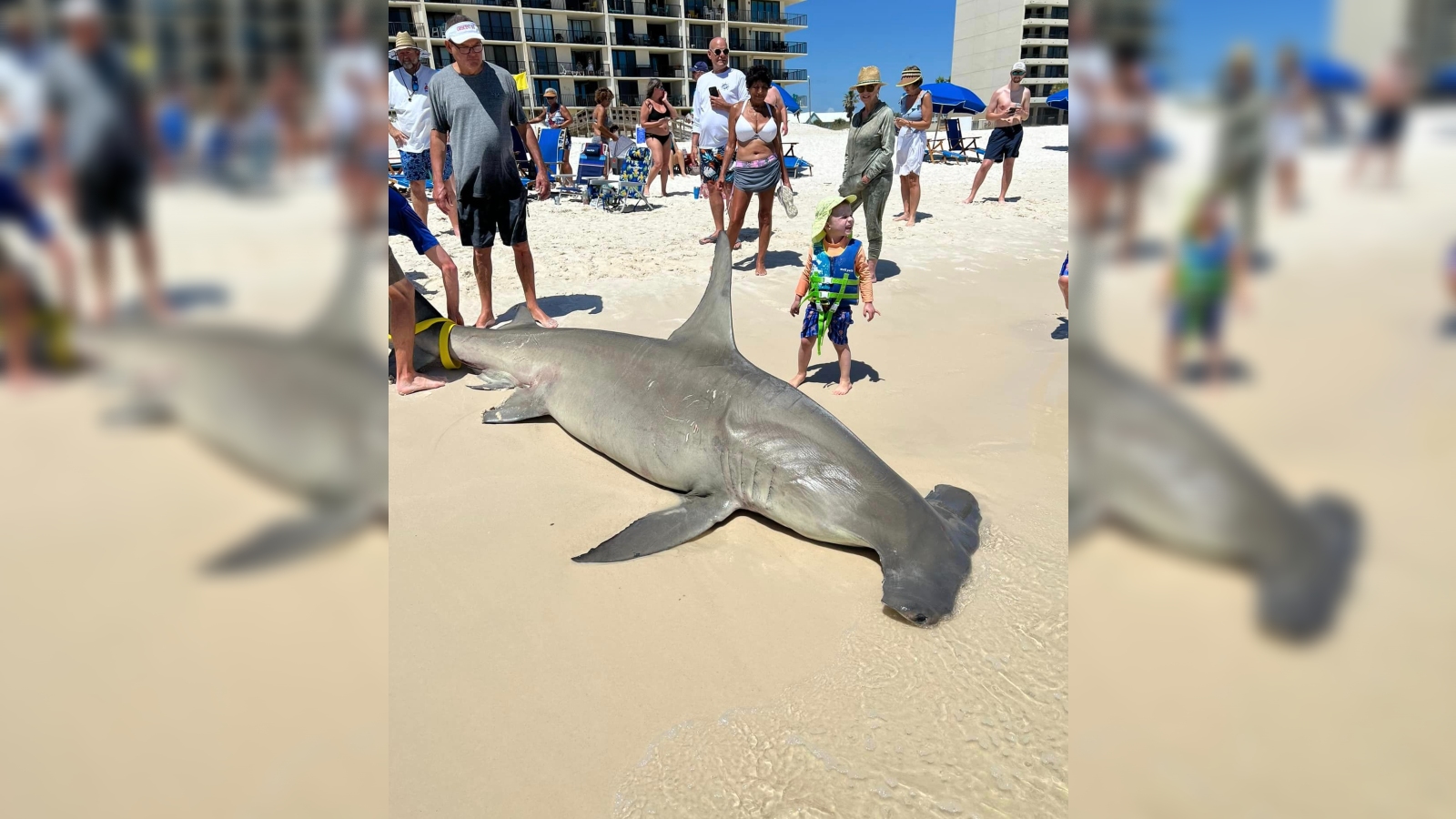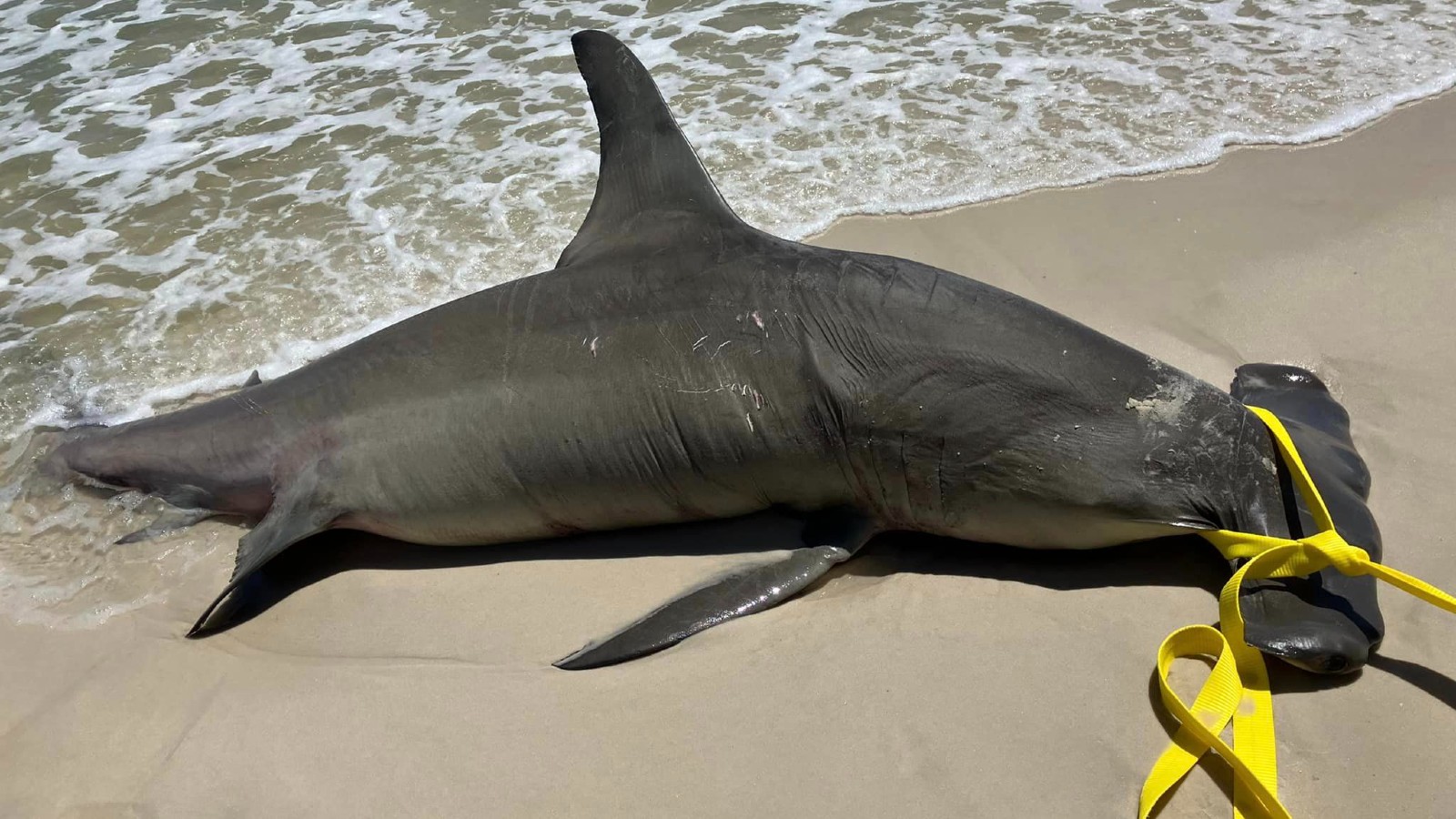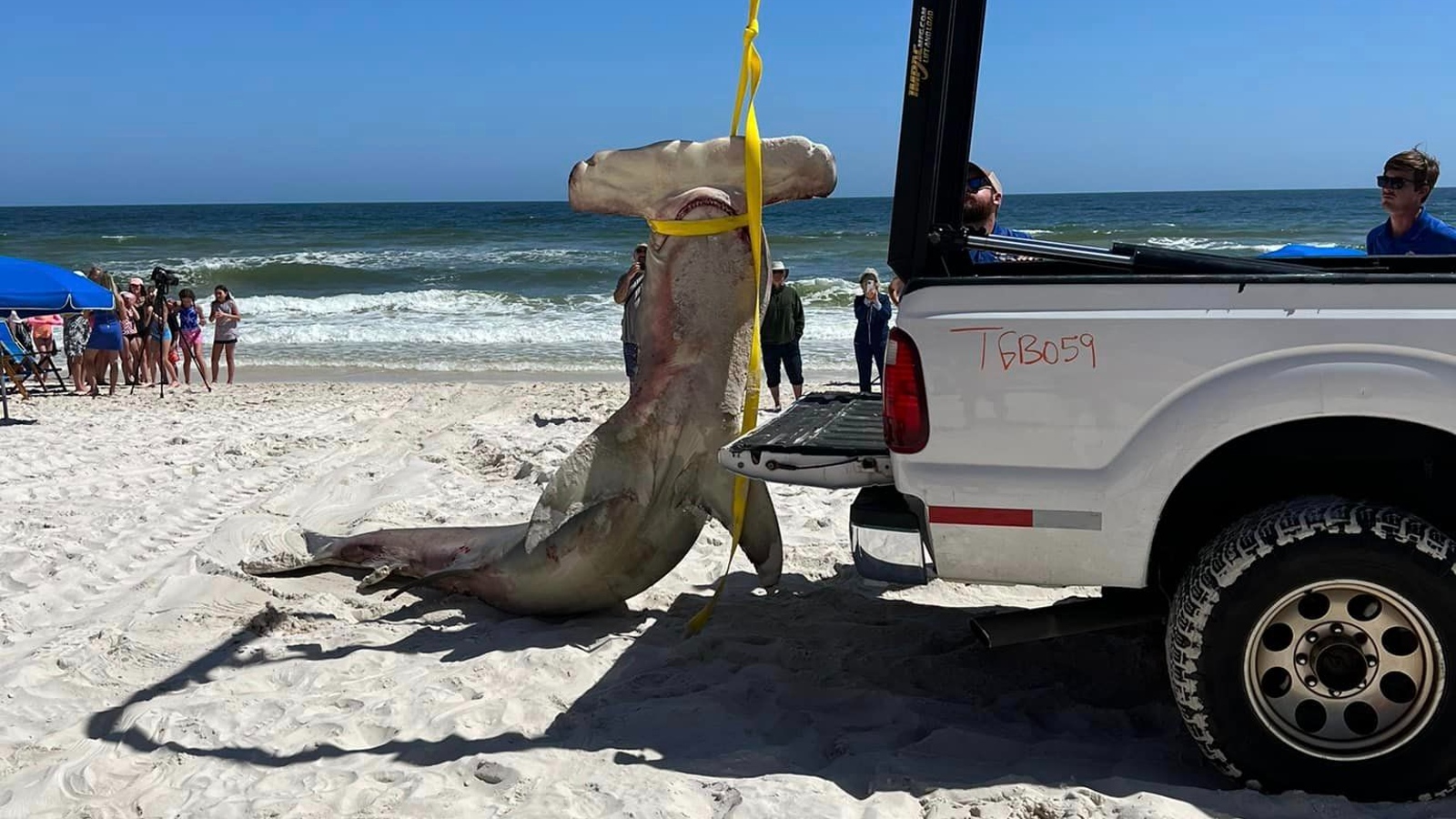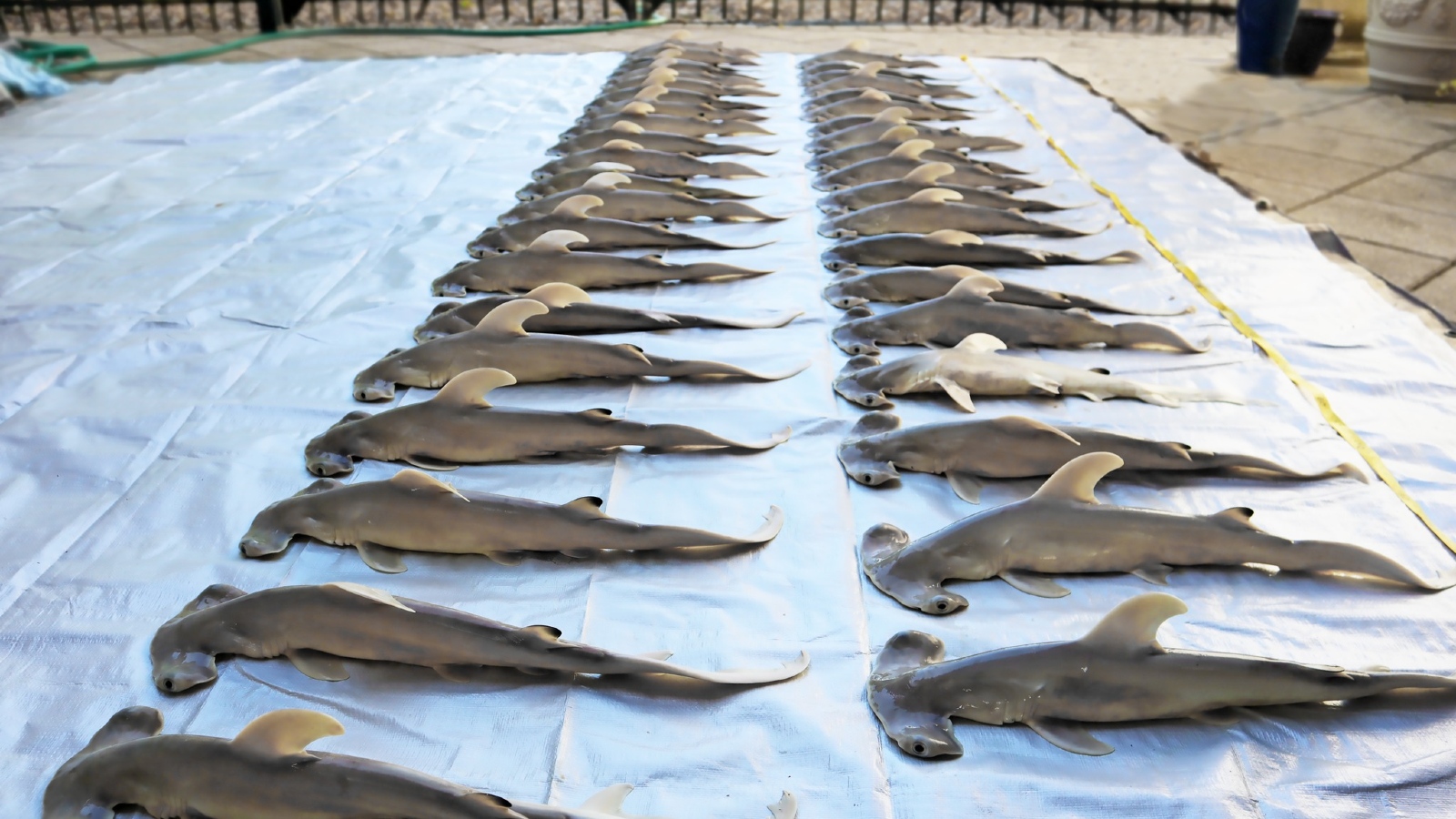Critically endangered hammerhead shark found dead on US beach was pregnant with 40 pups
The 14-foot great hammerhead washed ashore on a beach in Alabama. Researchers have since dissected the expectant mother but are unsure exactly what killed her.
Get the world’s most fascinating discoveries delivered straight to your inbox.
You are now subscribed
Your newsletter sign-up was successful
Want to add more newsletters?

Delivered Daily
Daily Newsletter
Sign up for the latest discoveries, groundbreaking research and fascinating breakthroughs that impact you and the wider world direct to your inbox.

Once a week
Life's Little Mysteries
Feed your curiosity with an exclusive mystery every week, solved with science and delivered direct to your inbox before it's seen anywhere else.

Once a week
How It Works
Sign up to our free science & technology newsletter for your weekly fix of fascinating articles, quick quizzes, amazing images, and more

Delivered daily
Space.com Newsletter
Breaking space news, the latest updates on rocket launches, skywatching events and more!

Once a month
Watch This Space
Sign up to our monthly entertainment newsletter to keep up with all our coverage of the latest sci-fi and space movies, tv shows, games and books.

Once a week
Night Sky This Week
Discover this week's must-see night sky events, moon phases, and stunning astrophotos. Sign up for our skywatching newsletter and explore the universe with us!
Join the club
Get full access to premium articles, exclusive features and a growing list of member rewards.
A massive hammerhead shark that recently washed up dead on a beach in Alabama was carrying 40 unborn pups, a necropsy (animal autopsy) has revealed. But it is unclear what killed the expectant mother.
The female great hammerhead (Sphyrna mokarran), which measured around 14 feet (4.3 meters) long, was discovered April 20 in the shallows near Orange Beach. A group of passersby pulled the lifeless giant onto the beach and contacted the city's coastal resources team, who recovered the corpse, city officials wrote on Facebook.
The dead shark was in such good condition that officials contacted researchers at Mississippi State University's Marine Fisheries Ecology (MFE) group, who carried out a necropsy on the shark the next day.
The team found that the hammerhead was carrying 40 pups, each around 1.5 feet (0.4 m) long. The brood and the mother were likely already dead before they washed ashore, according to city officials.
"While it was very sad that the shark passed," the team's findings could help vastly improve what we know about this species' reproduction, city officials wrote.
Related: Great white shark washes up on South Carolina beach in rare, unusual stranding
Great hammerheads are listed as critically endangered, according to the International Union for Conservation of Nature (IUCN) Red List of Threatened Species. There are no clear estimates on how many are left globally, but they are believed to be decreasing year on year.
Get the world’s most fascinating discoveries delivered straight to your inbox.
During the necropsy, the team removed and examined key organs, including the mother shark's heart, liver, esophagus, stomach, spleen, kidneys and pancreas. There were no signs of trauma or disease in any of these body parts, MFE representatives wrote on Facebook. They also sent of samples from the animal's vertebrae, muscle tissue and fins to be further analyzed in the lab.
The shark's stomach was empty — normally a red flag during a necropsy — but female hammerheads often go without food for several months while pregnant, so this was expected, MFE representatives wrote.


Although MFE researchers could not determine a cause of death, they suspect it may be fishing-related.
"We know that great hammerheads are especially prone to the physiological effects of capture stress, more so than most other shark species," they wrote, adding that pregnancy can compound this physiological stress.
Capture-induced stress was also linked to a failed shark pregnancy last year. In May 2022, a dead juvenile thresher shark (Alopias vulpinus) washed up on a U.K. beach. Experts suggested that the shark, which was not fully developed, had likely been aborted by its mother after she was accidentally caught and released by fishers.
Although the baby hammerhead sharks will never be born, they will have a second life in the education system. The pups will be preserved and donated to local classrooms to help teach children about sharks and reproduction, MFE representatives wrote.

Harry is a U.K.-based senior staff writer at Live Science. He studied marine biology at the University of Exeter before training to become a journalist. He covers a wide range of topics including space exploration, planetary science, space weather, climate change, animal behavior and paleontology. His recent work on the solar maximum won "best space submission" at the 2024 Aerospace Media Awards and was shortlisted in the "top scoop" category at the NCTJ Awards for Excellence in 2023. He also writes Live Science's weekly Earth from space series.
 Live Science Plus
Live Science Plus












